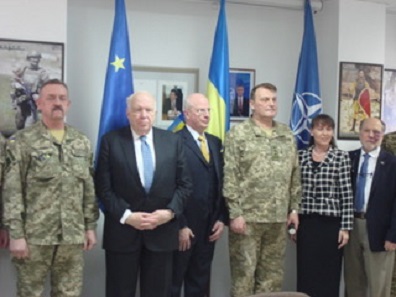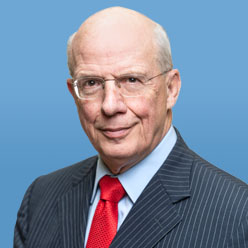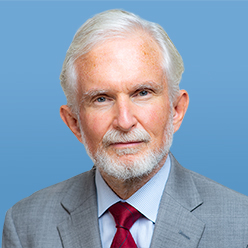The American Foreign Policy Council (AFPC) sponsored a study delegation to Ukraine during the first week of April 2018. Led by former Under Secretary of State William Schneider and AFPC President Herman Pirchner, Jr., this delegation continued a pattern of study visits to Ukraine extending back over two decades.
Our delegation contained both first-timers to Ukraine as well as members who’ve logged many visits over the years. In addition to Schneider and Pirchner, AFPC Senior Fellow for Europe and Eurasia E. Wayne Merry, Executive Director of the House Freedom Caucus (HFC) Justin Ouimette, Chairman ad interim of the International Council in Support of Ukraine Borys Potapenko, AFPC Board Member Julia Burke and The Quality Control Center firm President Adriana Luchechko participated in the delegation.
The group first traveled to eastern Ukraine, with visits to the cities of Kharkiv, Kramatorsk (the provisional capital of Donetsk Oblast while the city of Donetsk remains occupied) and Avdiyivka (an industrial suburb of Donetsk). While there, the delegation visited the actual front-line of the conflict zone in the Donbas in the company of elite Ukrainian combat forces. The tempo and violence of the fighting have declined dramatically from the first two years of the conflict (then comparable with the worst of the fighting during the Yugoslav breakup). Still, the fighting continues, as does the disruption to the economic life of one of the most industrialized regions of Europe, with the displacement of at least two million former inhabitants.
While currently a “no war, no peace” situation, the Donbas certainly does not qualify as a “frozen conflict.” The possibility that Moscow might, at any moment, renew large-scale fighting cannot be excluded.
The delegation also learned that the Ukrainian Army has expanded and improved dramatically since 2014, and now has the second largest ground forces in Europe after Russia, which are increasingly well-equipped. In particular, American-provided Javelin anti-tank weapons were the subject of much appreciation. Attracting enough recruits remains a problem in a society with better-paid alternatives (now including in EU countries) and less of the public martial ardor of 2014-15. However, in the event of another crisis, Ukraine can call on reservists with combat experience to serve an army with broad public support.
The group then traveled to the capital, Kyiv, for three very full days of meetings with interlocutors that included Ukrainian Prime Minister Volodymyr Groysman, Foreign Minister Pavlo Klimkin, senior officials, members of the national parliament (the Rada) including Speaker Andriy Parubiy, and other figures.
Delegates noted that two reform questions dominate the current debate in Ukraine: reform of the national security establishment and its oversight, and creation of a national-level anti-corruption court. The United States and NATO play an active role on the former issue because the ostensible goal is to move Ukraine to full NATO standards. This would require separation of the Defense Ministry from the General Staff, effective parliamentary oversight of security budgets, and other measures unwelcome to Ukrainian President Petro Poroshenko.

Ms. Adriana Luchechko and Mr. Borys Potapenko pose with Col. Igor Kanonenko (left)
and First Deputy Chief of the General Staff of the Armed Forces of Ukraine Col. Gen. Igor Kolesnik.
The Kyiv political world is focused on upcoming national elections in 2019: presidential elections at the end of March and Rada elections by the early fall. Poroshenko is seen as a “transitional rather than a transformational” Ukrainian leader. Some say he has achieved more reforms in three years than his predecessors did in twenty-five (though many of his reforms originated with others), but today, expectations for Poroshenko are quite low. Surrounded by oligarchic influences, he is the key obstacle to important reforms, including of the national security structure, an anti-corruption court, continuing health care reform, and others.
A constant question is whether the president might call snap Rada elections to change his prime minister, Volodymyr Groysman. As there are currently six political factions in the Rada (two of them accused of being anti-reform), it is not entirely clear why an early return to the voters would produce much benefit for either Poroshenko or his opponents, but it would consume time and energy which otherwise could be devoted to reforms.
The delegation also conducted a seminar for advanced law and history students at the country’s most prestigious university in Kyiv.

